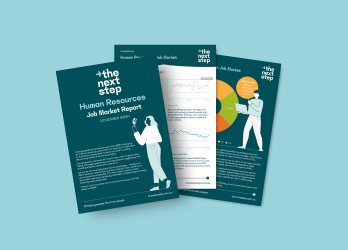How to find HR Jobs in Australia
Are you an experienced HR or People & Culture professional considering a move to Australia? You're not alone. With its strong economy, varied job opportunities, and high quality of life, Australia is an attractive destination for many in the HR field.
In this guide, we'll share practical tips and insights to help you find HR jobs in Australia and make your transition to working here as smooth as possible. Read on to learn more.

How to find HR jobs in Australia
With many organisations looking to strengthen their culture and plan for the future of work, People and Culture professionals are in well demand and are well respected. Strong opportunities for experienced HR professionals exist across a wide range of industries.
However, it's important to note that employers often prefer candidates who already have working rights, local experience, and familiarity with Australian workplace legislation and practices. To stand out as an international candidate, you'll need to demonstrate something special or hard to find, such as substantial HR experience, specialist skillsets, or a proven track record of success in your field.
While securing an HR role in Australia as an overseas candidate may be challenging, particularly if you require sponsorship, there are still avenues available for those with the right qualifications and experience. By understanding the local market, tailoring your application, and engaging with specialist HR recruiters, you can increase your chances of finding the right opportunity and making your move to Australia a reality.
Obtaining the right visa
Before you try to find HR jobs in Australia, you must first have the right to work here. To work in Australia, you'll need to be a citizen or resident, or to have a valid visa. The most common visa types for skilled professionals are the Temporary Skill Shortage (TSS) visa (subclass 482) and the Skilled Independent visa (subclass 189). Head to the Department of Home Affairs website for more information on visa options and requirements.
Keep in mind that some visas, like the TSS visa, require sponsorship from an Australian employer. This means you'll need to secure a job offer before applying for the visa, which can be tricky unless you possess in-demand capabilities, are highly qualified or have a specialist skillset.
Having transparent plans and timeframes
When you're planning your HR career move to Australia, it's important to have clear timeframes and plans in place. This includes setting realistic goals for when you want to arrive in Australia, when you'd like to start working, and how long you expect your job search to take.
Keep in mind that the visa application process can take time, so factor this into your planning.
Communicate timeframes honestly with recruiters and potential employers. Being transparent about your plans and availability will help them better understand your situation and determine if they can support your job search and relocation. You don't want to risk misleading anyone and burning bridges.
Understanding the Australian HR landscape
Before embarking on your job search, take some time to get to know the HR landscape in Australia. The Australian HR Institute (AHRI) is a great starting point, offering a wealth of resources, industry news, professional development opportunities and networking events.
It's also worth tuning in to Australia's mainstream media and specific HR media outlets, such as HRM Online and HR Daily, to stay up-to-date with the latest trends and discussions shaping the industry.
The Next Step's HR Job Market Report is another valuable resource, providing insights into the demand for HR skills across different industries and regions.
Learning about Australian Workplace Rules and Regulations
Australian employment law can be complex, with a mix of federal and state legislation governing various aspects of the employer-employee relationship. Different states and territories will have different workplace rules and regulations, but a good place to start is:
- The Fair Work Ombudsman (FWO) is an independent statutory agency that provides information and advice about Australia's workplace rights and obligations. Learn about minimum entitlements, awards, and agreements, as well as handling workplace disputes.
- The Fair Work Commission (FWC) is Australia's national workplace relations tribunal. It is responsible for maintaining a safety net of minimum conditions, managing industrial disputes, and approving enterprise agreements.
- Safe Work Australia develops national policy relating to work health and safety (WHS) and workers' compensation. Learn about WHS laws, codes of practice and guidelines.
- Australian Human Rights Commission (AHRC) offers resources on workplace discrimination, harassment, and diversity & inclusion.
- Workplace Gender Equality Agency (WGEA) provides information on gender equality reporting requirements, best practices, and tools for employers.
By exploring these resources and understand the nuances of Australian workplace rules and regulations, you'll be better prepared to transition from abroad and embed yourself in an Australian workplace.
Tailoring your resume and cover letter
When applying for HR jobs in Australia, it's essential to tailor your resume and cover letter to the local market. Australian resumes tend to be more concise and achievement-focused than their international counterparts. Use action verbs, quantify your accomplishments, and highlight any experience that's relevant to the Australian context.
Don't forget to include any professional certifications you hold (particularly local ones, such as those offered by AHRI or similar), as these are valued by Australian employers.
Building your network
Networking is a powerful tool in any job search, and it's no different in Australia. Start by reaching out to your existing connections to see if they have any contacts in Australia or know of any opportunities.
LinkedIn is another fantastic platform for building your professional network. The Next Step's LinkedIn page, for example, has an active community of 25,000+ HR professionals.
Also consider joining other Australian online HR groups, participate in discussions, and connect with HR professionals in your target companies or industries. You never know where a simple conversation or connection might lead!
Engaging with The Next Step
If you are new to the Australian job market, it's worth connecting with The Next Step team. Our specialist consultants can provide valuable guidance on the local job market, help you refine your application, and connect you with leading Australian employers.
In addition to reviewing newly advertised roles on our HR job board, it's worth submitting your resume for consideration. Our consultants will carefully review your background and experience to identify opportunities that align with your skills and goals
Being realistic in your expectations
Please keep in mind that as a recruitment consultancy, we work closely with our clients to fulfil their specific job requirements. Many of our clients place a strong emphasis on pre-existing working rights, local market knowledge and experience, as they believe this helps new hires quickly integrate into their teams and navigate the unique aspects of the Australian workplace. Familiarity with Australian workplace legislation and practices is also considered important.
While this preference for local experience can make it more challenging for international candidates, it's not an insurmountable obstacle. By showcasing your transferable skills, highlighting your international perspective, and demonstrating clear value and enthusiasm you can still catch the attention of potential employers. Be patient, stay positive, and keep refining your approach based on the feedback you receive.
Preparing for interviews
If you land an interview for an HR role, congrats! Your Next Step recruitment consultant will help guide and support you through the interview process. This is your chance to showcase your skills and experience. Be prepared to discuss your understanding of Australian workplace laws and how your international experience translates to the local context.
If you're interviewing remotely, make sure you have a quiet location, stable internet connection and professional background. Dress the part, even if the interview is via video call, and be mindful of time zone differences.
Good luck with finding HR jobs in Australia!
While moving from overseas to work as an HR professional in Australia comes with its challenges, it also presents incredible opportunities for growth, both personally and professionally. By showcasing the things that make you special as a People and Culture professional (think specialist expertise and a proven track record of success), you can set yourself apart as an international candidate and catch the attention of potential employers.
Remember, the key to success lies in understanding the local market, tailoring your approach, and tapping into local networks . Be realistic about the challenges you may face, but stay positive and persistent in your pursuit of the right role.
As you take the next step in your HR career journey, know that you are joining a community of respected and valued professionals who are making a real difference in the lives of employees and the success of organisations Down Under. Embrace the opportunity, stay focused on your goals, and good luck in finding a HR job in Australia.



